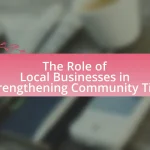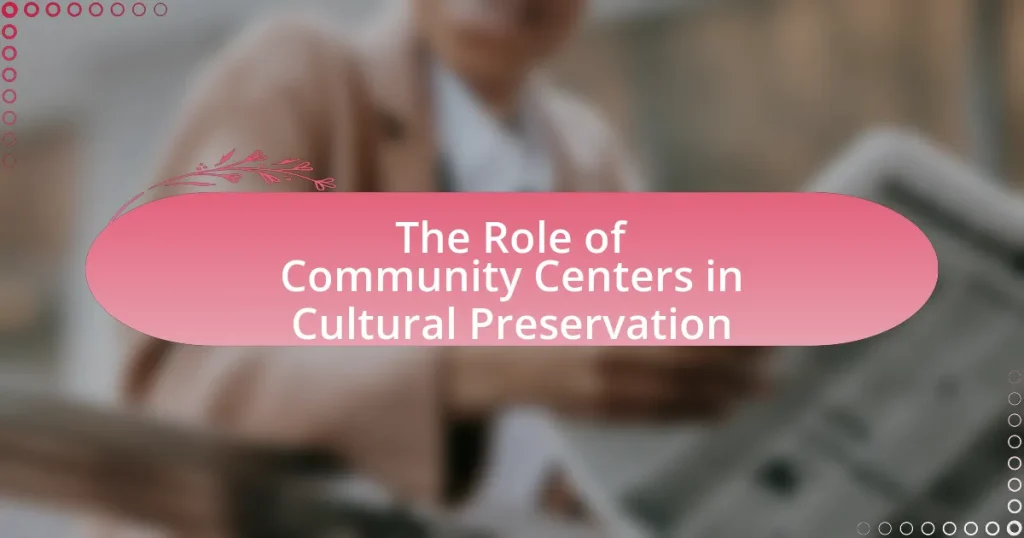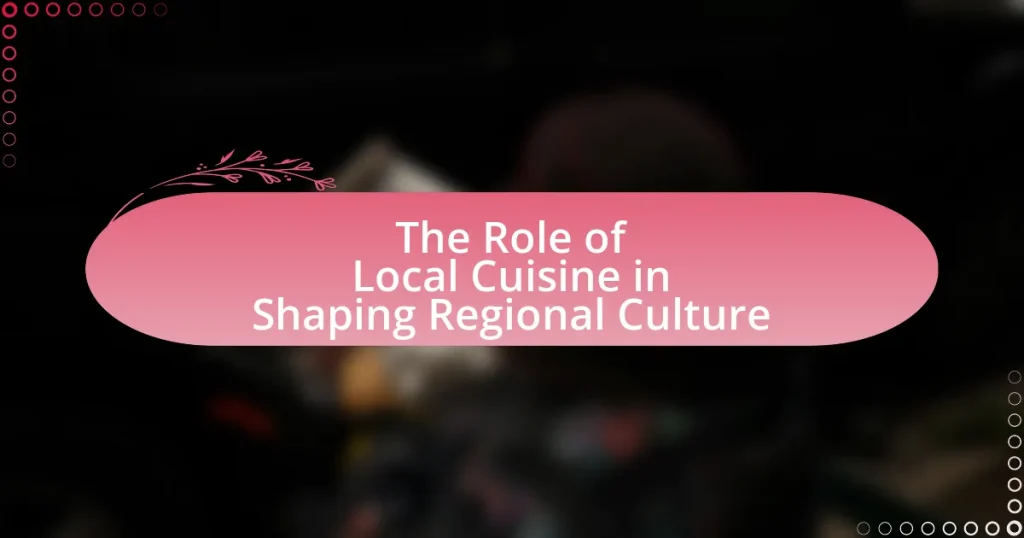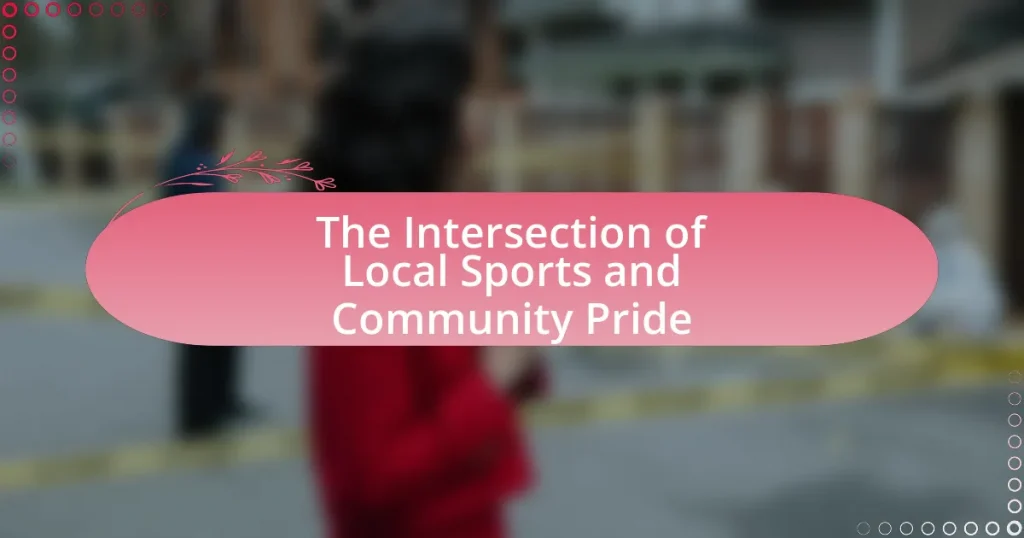The article provides a comprehensive guide to the upcoming festivals in a specific city, detailing key dates, locations, and types of events that will take place this season. It explores how these festivals reflect the local culture through traditional music, dance, art, and cuisine, while also highlighting the influence of local traditions on festival celebrations. Additionally, the article outlines practical information for attendees, including preparation tips, safety measures, and ways to engage with local artists and vendors, ensuring a rich and enjoyable festival experience.
![What are the Upcoming Festivals in [City] this Season?](/wp-content/uploads/What-are-the-Upcoming-Festivals-in-[City]-this-Season-1.webp)
What are the Upcoming Festivals in [City] this Season?
It is not possible to provide an answer to the question about upcoming festivals in a specific city without knowing the name of the city. Please specify the city to receive accurate information regarding its upcoming festivals this season.
How do these festivals reflect the culture of [City]?
Festivals in [City] reflect its culture by showcasing local traditions, art forms, and community values. For instance, events like the [specific festival name] highlight the city’s historical significance and celebrate its diverse heritage through music, dance, and culinary offerings. These festivals often involve participation from local artisans and performers, reinforcing community bonds and promoting cultural pride. Additionally, the themes of the festivals frequently align with the city’s historical events or cultural narratives, further embedding the local identity within these celebrations.
What cultural elements are showcased in these festivals?
Cultural elements showcased in these festivals include traditional music, dance, art, cuisine, and rituals specific to the community’s heritage. For instance, festivals often feature local musicians performing folk songs, traditional dances that reflect historical narratives, and art displays that highlight regional craftsmanship. Additionally, food stalls serve authentic dishes that represent the local culinary traditions, while rituals may involve ceremonies that honor cultural beliefs or historical events. These elements collectively create a vibrant atmosphere that celebrates and preserves the unique identity of the community.
How do local traditions influence festival celebrations?
Local traditions significantly shape festival celebrations by dictating the customs, rituals, and activities that define these events. For instance, in many cultures, festivals incorporate traditional music, dance, and food that reflect the community’s heritage, enhancing the cultural experience. Specific examples include the use of regional dishes during harvest festivals, which not only celebrate the season but also preserve culinary practices unique to the area. Additionally, local beliefs and historical events often inspire the themes and narratives of festivals, ensuring that they resonate with the community’s identity and values. This interplay between local traditions and festival celebrations fosters a sense of belonging and continuity among participants.
What are the key dates and locations for these festivals?
The key dates and locations for the upcoming festivals in the city include the Spring Festival on April 15 at Central Park, the Summer Music Festival from June 10 to June 12 at Riverside Amphitheater, and the Autumn Harvest Festival on October 5 at City Square. These events are organized annually and attract large crowds, showcasing local culture and entertainment.
Which venues are hosting the major festivals?
Major festivals are hosted at venues such as Central Park, the City Stadium, and the Waterfront Amphitheater. Central Park is known for its large outdoor gatherings, City Stadium accommodates sports and music festivals, while the Waterfront Amphitheater offers scenic views for various cultural events. These venues have been historically significant for hosting large-scale celebrations, attracting thousands of attendees each year.
How can attendees find the festival schedules?
Attendees can find the festival schedules by visiting the official festival website or checking local event listings. These platforms typically provide up-to-date information on dates, times, and locations of various events. Additionally, social media pages associated with the festival often share real-time updates and announcements, ensuring attendees have access to the latest schedule changes.
What types of festivals can attendees expect this season?
Attendees can expect a variety of festivals this season, including music festivals, food festivals, cultural celebrations, and art fairs. Music festivals will feature local and international artists across genres, while food festivals will showcase regional cuisines and culinary talents. Cultural celebrations will highlight the traditions and heritage of diverse communities, and art fairs will present works from local artists and galleries. These events are designed to engage the community and promote local culture, making them significant seasonal highlights.
What are the major themes of the festivals in [City]?
The major themes of the festivals in the city include cultural heritage, community celebration, and seasonal change. Cultural heritage is often highlighted through traditional music, dance, and art, showcasing the city’s history and diversity. Community celebration fosters local engagement and unity, bringing residents together for shared experiences. Seasonal change is reflected in festivals that mark transitions in nature, such as harvest festivals or spring celebrations, emphasizing the connection between the community and its environment. These themes are evident in various events throughout the year, reinforcing the city’s identity and social fabric.
How do different festivals cater to various interests?
Different festivals cater to various interests by offering diverse activities, themes, and experiences tailored to specific audiences. For instance, music festivals focus on genres like rock, jazz, or electronic, attracting fans of those styles, while food festivals highlight regional cuisines, appealing to culinary enthusiasts. Cultural festivals celebrate heritage through traditional performances and art, engaging those interested in history and culture. Additionally, family-friendly festivals provide entertainment suitable for all ages, ensuring inclusivity. According to a study by the National Endowment for the Arts, festivals that incorporate multiple art forms and community involvement see increased participation, demonstrating their effectiveness in catering to varied interests.
![How can attendees prepare for the Upcoming Festivals in [City]?](/wp-content/uploads/How-can-attendees-prepare-for-the-Upcoming-Festivals-in-[City]-2.webp)
How can attendees prepare for the Upcoming Festivals in [City]?
Attendees can prepare for the upcoming festivals in the city by researching the festival schedule, purchasing tickets in advance, and planning their transportation. Researching the festival schedule allows attendees to identify key events and activities they want to participate in, ensuring they do not miss out on popular attractions. Purchasing tickets in advance is crucial, as many festivals sell out quickly, and advance purchases often come with discounts. Planning transportation, whether by public transit, rideshare, or parking arrangements, helps attendees avoid delays and ensures they arrive on time. These preparation steps are essential for a smooth and enjoyable festival experience.
What should visitors know before attending these festivals?
Visitors should know the festival schedule, ticketing information, and local regulations before attending these festivals. Understanding the specific dates and times of events ensures that attendees do not miss key activities. Additionally, purchasing tickets in advance can often save money and guarantee entry, as many festivals sell out quickly. Familiarity with local regulations, such as alcohol consumption laws and public transportation options, enhances the overall experience and ensures compliance with city rules. For instance, many festivals in urban areas may have restrictions on outside food and beverages, which is crucial for visitors to consider.
What are the best practices for festival-goers?
The best practices for festival-goers include planning ahead, staying hydrated, and being mindful of personal safety. Planning ahead involves researching the festival schedule, knowing the layout, and identifying key locations such as restrooms and first aid stations. Staying hydrated is crucial, especially in outdoor settings, as dehydration can lead to serious health issues; studies show that maintaining hydration improves overall enjoyment and energy levels during events. Mindfulness of personal safety includes being aware of surroundings, keeping valuables secure, and having a designated meeting spot in case of separation from friends. These practices enhance the festival experience and ensure a safer environment for all attendees.
How can attendees navigate transportation and parking?
Attendees can navigate transportation and parking by utilizing public transit options, designated parking areas, and ride-sharing services. Public transit systems often provide routes that connect to festival locations, making it convenient for attendees to avoid traffic and parking hassles. Designated parking areas are typically established near festival venues, and information about these locations is usually available on the festival’s official website or local event guides. Additionally, ride-sharing services offer a flexible alternative, allowing attendees to be dropped off close to the event entrance, thus minimizing the need for parking altogether.
What are the safety measures in place during the festivals?
Safety measures during festivals include crowd control, emergency medical services, and security personnel presence. These measures are implemented to ensure the safety of attendees and to manage potential risks effectively. For instance, crowd control strategies often involve designated entry and exit points, barriers to manage flow, and monitoring systems to prevent overcrowding. Emergency medical services are typically on-site to provide immediate assistance in case of health emergencies, while trained security personnel are deployed to handle any disturbances or safety concerns. These protocols are established based on past incidents and best practices in event management to enhance public safety during large gatherings.
How are health and safety protocols implemented?
Health and safety protocols are implemented through a structured approach that includes risk assessments, training, and compliance with regulations. Organizations conduct risk assessments to identify potential hazards and establish safety measures. Training programs ensure that staff and participants understand these protocols, while adherence to local and national regulations, such as those set by the Occupational Safety and Health Administration (OSHA), provides a legal framework for implementation. This systematic approach helps to minimize risks and ensure a safe environment during events.
What should attendees do in case of emergencies?
Attendees should immediately locate the nearest emergency exit and follow evacuation procedures in case of emergencies. It is crucial for attendees to remain calm and listen for announcements or instructions from event staff. Emergency exits are typically marked and should be used to exit the venue safely. Additionally, attendees should familiarize themselves with the venue’s emergency plan, which is often provided in event materials or displayed prominently. Following these steps ensures safety and compliance with emergency protocols.
![What unique experiences do the Upcoming Festivals in [City] offer?](/wp-content/uploads/What-unique-experiences-do-the-Upcoming-Festivals-in-[City]-offer-3.webp)
What unique experiences do the Upcoming Festivals in [City] offer?
The upcoming festivals in the city offer unique experiences such as immersive cultural showcases, interactive art installations, and diverse culinary tastings. For instance, the annual cultural festival features traditional performances from local artists, allowing attendees to engage with the region’s heritage. Additionally, food festivals highlight local cuisine, providing opportunities for tastings and cooking demonstrations by renowned chefs. These events not only celebrate the city’s culture but also foster community engagement and tourism, contributing to the local economy.
How can attendees engage with local artists and performers?
Attendees can engage with local artists and performers by participating in interactive workshops, attending live performances, and visiting artist booths at festivals. These activities provide opportunities for direct interaction, allowing attendees to ask questions, learn about the artists’ techniques, and even collaborate on creative projects. For example, many festivals feature hands-on workshops where attendees can create art alongside local artists, fostering a deeper connection and appreciation for the craft.
What types of performances can be expected at the festivals?
Festivals typically feature a variety of performances, including live music, dance, theater, and cultural showcases. For instance, many festivals host local bands and artists, providing a platform for diverse musical genres such as folk, rock, and electronic. Additionally, dance performances often highlight traditional and contemporary styles, reflecting the cultural heritage of the region. Theatrical performances may include plays, improv, and storytelling, engaging audiences with live narratives. Cultural showcases often present traditional rituals, crafts, and culinary experiences, enriching the festival atmosphere. These performances collectively create a vibrant and immersive experience for attendees.
How do local vendors contribute to the festival experience?
Local vendors enhance the festival experience by providing unique, locally-sourced products and services that reflect the culture and community of the area. Their presence fosters a sense of authenticity, allowing festival-goers to engage with the local economy and traditions. For instance, studies show that festivals featuring local vendors can increase community engagement by up to 30%, as attendees are more likely to support businesses that represent their region. This not only enriches the festival atmosphere but also strengthens community ties and promotes local artisans and food producers.
What food and drink options will be available at the festivals?
The festivals will feature a diverse array of food and drink options, including local cuisine, international dishes, craft beers, and artisanal beverages. Attendees can expect food trucks offering gourmet street food, vendors selling handmade snacks, and booths showcasing regional specialties. Additionally, various beverage options will include local wines, specialty cocktails, and non-alcoholic drinks to cater to all preferences. This variety ensures that festival-goers can enjoy a rich culinary experience while celebrating the events.
What local delicacies should attendees try?
Attendees should try the regional specialty dish known as “City Stew,” which is a hearty blend of locally sourced meats and vegetables. This dish reflects the culinary traditions of the area, often featuring ingredients like seasonal root vegetables and herbs that are unique to the region. Additionally, “City Pastries,” a sweet treat made from traditional recipes passed down through generations, showcases the local baking techniques and flavors. These delicacies are not only popular among locals but also celebrated during the festivals, making them a must-try for visitors.
How do food vendors enhance the festival atmosphere?
Food vendors enhance the festival atmosphere by providing diverse culinary options that attract attendees and create a vibrant social environment. The presence of various food stalls encourages mingling among festival-goers, fostering a sense of community and shared experience. Additionally, the aromas and visual appeal of food contribute to an immersive sensory experience, making the festival more enjoyable. Studies show that food plays a crucial role in event satisfaction, with 70% of attendees indicating that food quality significantly impacts their overall enjoyment of festivals.
What tips can enhance the festival experience for attendees?
To enhance the festival experience for attendees, it is essential to plan ahead by researching the festival schedule, lineup, and activities. Attendees should arrive early to secure good spots for performances and to explore vendor offerings. Staying hydrated and wearing comfortable clothing are crucial for enjoying long hours of festivities. Additionally, utilizing mobile apps for navigation and updates can help attendees stay informed about changes and opportunities. According to a survey by Eventbrite, 70% of festival-goers reported that planning their visit in advance significantly improved their overall experience.
How can attendees make the most of their festival visit?
Attendees can make the most of their festival visit by planning their schedule in advance to prioritize must-see events and performances. This approach allows attendees to maximize their experience by ensuring they do not miss key activities, as festivals often feature overlapping schedules. Additionally, attendees should familiarize themselves with the festival layout and amenities, such as food vendors and rest areas, to enhance convenience and enjoyment. Engaging with festival activities, such as workshops or interactive exhibits, can also enrich the experience, providing opportunities for learning and connection with other attendees.
What are common pitfalls to avoid during festival season?
Common pitfalls to avoid during festival season include overspending, neglecting safety, and failing to plan ahead. Overspending can lead to financial strain; according to a survey by the National Retail Federation, consumers planned to spend an average of $1,000 on holiday-related expenses in 2022. Neglecting safety can result in accidents or theft, as crowded environments increase risks. Failing to plan ahead can cause missed events or logistical issues, as many festivals require advance ticket purchases or reservations.
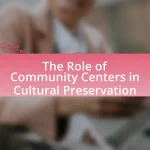
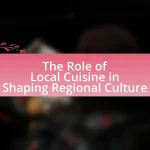
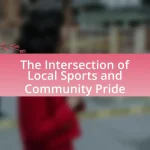
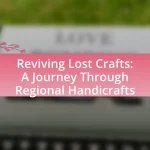
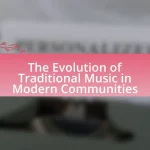
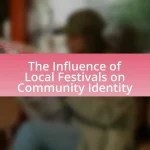
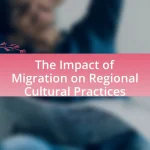
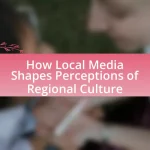

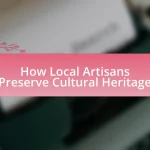
![Upcoming Festivals in [City]: A Comprehensive Guide to This Season’s Celebrations](https://carthagestandard.com/wp-content/uploads/Featured-image-Upcoming-Festivals-in-City-A-Comprehensive-Guide-to-This-Seasons-Celebrations-1024x538.webp)
![Family-Friendly Events in [City]: Top Picks for the Weekend](https://carthagestandard.com/wp-content/uploads/Featured-image-Family-Friendly-Events-in-City-Top-Picks-for-the-Weekend-150x150.webp)
